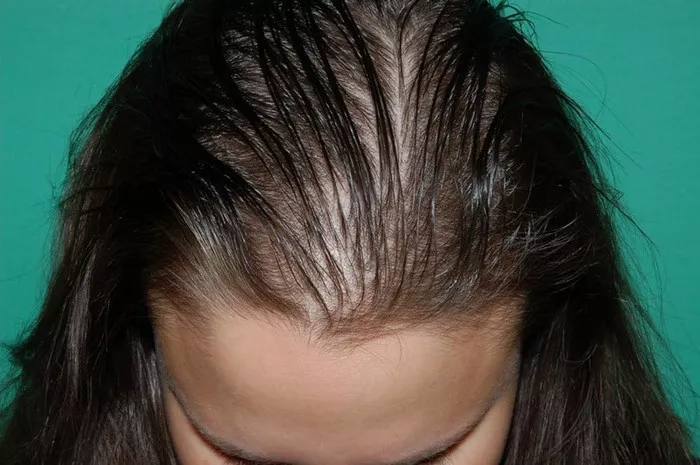Hair loss can be a distressing experience for women, impacting both physical appearance and self-esteem. While a certain amount of hair shedding is normal, excessive hair loss can be a cause for concern. Understanding the root causes and adopting proactive measures can significantly contribute to controlling hair loss in women.
1. Understanding the Causes of Hair Loss in Women
The first step in addressing hair loss is identifying its root causes. Common culprits include hormonal changes, nutritional deficiencies, stress, and genetic predisposition. Hormonal imbalances, such as those associated with pregnancy, menopause, or polycystic ovary syndrome (PCOS), can trigger hair loss. Nutrient deficiencies, especially in iron, zinc, and vitamins, can also play a significant role. It’s essential to consult with a healthcare professional to pinpoint the specific cause of your hair loss.
2. Maintaining a Healthy Diet for Hair Health
A well-balanced diet is crucial for overall health, and it directly impacts the health of your hair. Ensure your diet includes a variety of nutrient-rich foods, such as fruits, vegetables, lean proteins, and whole grains. Incorporate foods rich in iron, zinc, biotin, and vitamin E, as these nutrients are vital for hair health. Consider consulting with a nutritionist to create a personalized diet plan that addresses your specific nutritional needs.
3. Proper Hair Care Practices
Gentle care is essential to prevent further damage to fragile hair. Avoid excessive heat styling, tight hairstyles, and harsh chemical treatments, as these can contribute to hair breakage and loss. Use a wide-tooth comb to detangle wet hair and be mindful when brushing to prevent unnecessary stress on the hair shaft. Choose hair care products that are sulfate-free and designed for your hair type.
4. Regular Scalp Massage for Improved Circulation
A simple yet effective technique for promoting hair health is regular scalp massage. Massaging the scalp stimulates blood circulation, bringing essential nutrients to the hair follicles. Use your fingertips to gently massage your scalp in circular motions for about 5-10 minutes several times a week. You can enhance the massage by using natural oils like coconut, jojoba, or almond oil, known for their nourishing properties.
5. Addressing Hormonal Imbalances
Hormonal fluctuations can significantly impact hair health, leading to conditions like androgenetic alopecia or telogen effluvium. Consult with a healthcare professional to evaluate your hormonal levels and discuss potential treatment options. Hormone therapy or medications may be recommended to restore hormonal balance and prevent further hair loss.
6. Stress Management Techniques
Stress is a common factor contributing to hair loss in women. Implement stress management techniques such as meditation, yoga, deep breathing exercises, or regular physical activity. Adequate sleep is also crucial for overall well-being and can positively impact hair health.
7. Professional Intervention and Treatments
If hair loss persists despite lifestyle changes, seeking professional help is advisable. Dermatologists specialize in hair and scalp health and can provide tailored treatment plans. Prescription medications, topical treatments, and in-office procedures like laser therapy or platelet-rich plasma (PRP) injections may be recommended based on the severity and underlying cause of hair loss.
8. Supplements for Hair Health
Supplements can complement a healthy diet and address specific nutrient deficiencies contributing to hair loss. Biotin, iron, omega-3 fatty acids, and vitamin D are commonly recommended supplements for promoting hair health. However, it’s crucial to consult with a healthcare professional before starting any new supplement regimen to ensure it’s safe and appropriate for your individual needs.
See Also: [Revealed!] Can Hair Loss from Poor Diet Be Reversed?
In conclusion
Controlling hair loss in women involves a holistic approach that considers lifestyle, nutrition, and overall well-being. Identifying the root causes, maintaining a healthy lifestyle, and seeking professional guidance when needed are key steps in regaining and maintaining a vibrant, healthy head of hair. By adopting these practices, women can take proactive measures to control and manage hair loss, promoting confidence and overall well-being.


